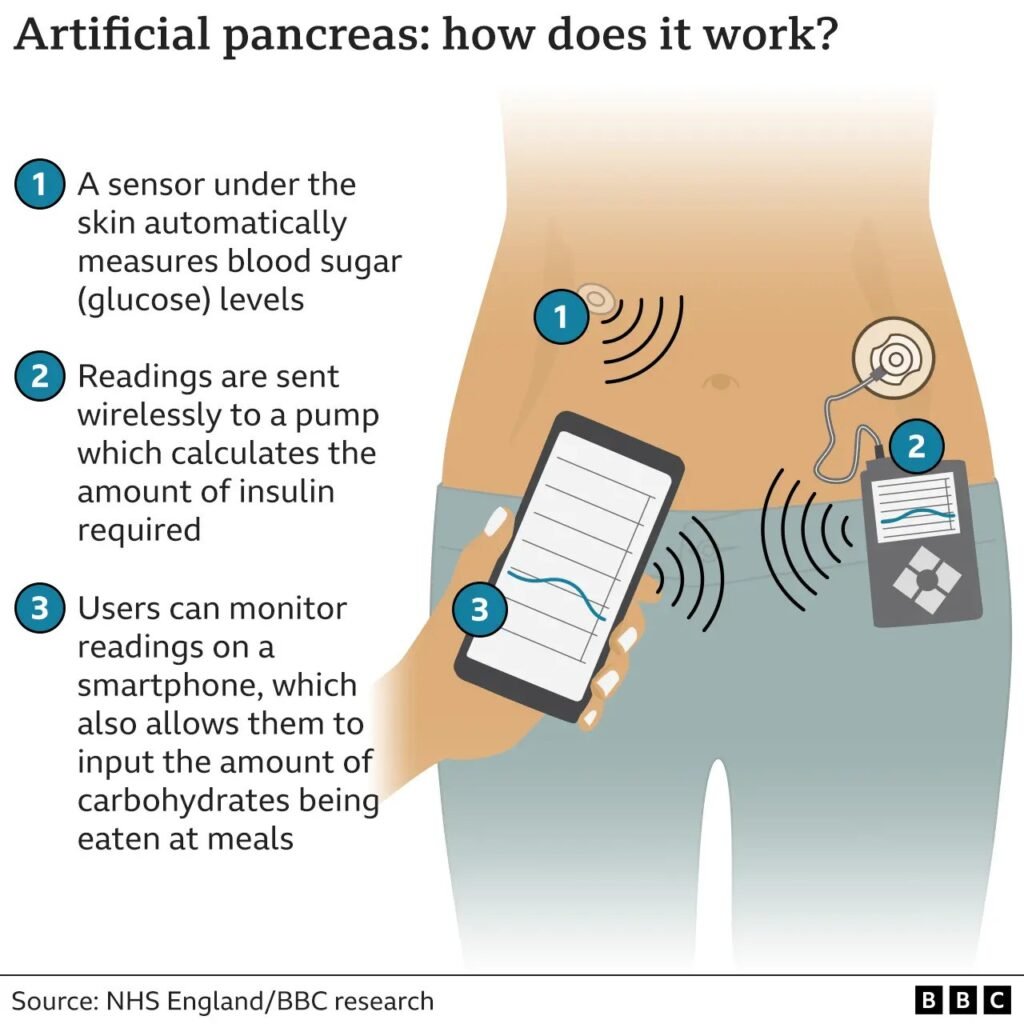LONDON: England is set to revolutionize diabetes care with a groundbreaking technology known as an artificial pancreas, which promises to transform the lives of tens of thousands of people with type 1 diabetes. According to the BBC, this technology uses a glucose sensor implanted under the skin, paired with a pump that automatically calculates and delivers the necessary insulin dosage.
Implementation and Rollout Challenges
The National Health Service (NHS) plans to start implementing this system later this month, targeting both adults and children who could benefit. However, the NHS has warned that achieving a full rollout could take up to five years. This delay stems from the challenges of securing a sufficient supply of devices and the need to train more staff on how to operate them.
Clinical Trial Success
Trials of this hybrid closed-loop system have already shown it can significantly improve the quality of life and reduce the risk of severe health complications related to diabetes. Nearly 300,000 individuals in the UK, including about 29,000 children, suffer from type 1 diabetes, a condition where the pancreas fails to produce insulin.

Technology Features and Benefits
The new technology automates the insulin delivery process, mimicking the function of a healthy pancreas but requiring input at mealtimes for precision. It aims to prevent extreme blood glucose fluctuations, thereby enhancing overall blood sugar control and reducing the risks of complications such as heart disease, vision loss, and kidney disease.
Expansion Across the UK
Scotland has already started adopting this technology, with Wales and Northern Ireland expected to follow. Gemma Lavery, a participant in an NHS pilot scheme, shared her positive experience, noting the device’s significant impact on reducing stress and stabilizing her blood glucose levels.
Expert and Organizational Support
Professor Partha Kar, NHS national specialty advisor for diabetes, praised the technology as “great news for everyone with type 1 diabetes,” highlighting its potential to improve both medical outcomes and quality of life. Dr. Clare Hambling, NHS England’s diabetes clinical director, also emphasized the transformative potential of the technology and encouraged individuals experiencing type 1 diabetes symptoms to seek help promptly.
Colette Marshall, CEO of Diabetes UK, celebrated the technology’s rollout as a “landmark moment” in diabetes management, illustrating broad support and anticipation for its impact on healthcare in the UK.
















